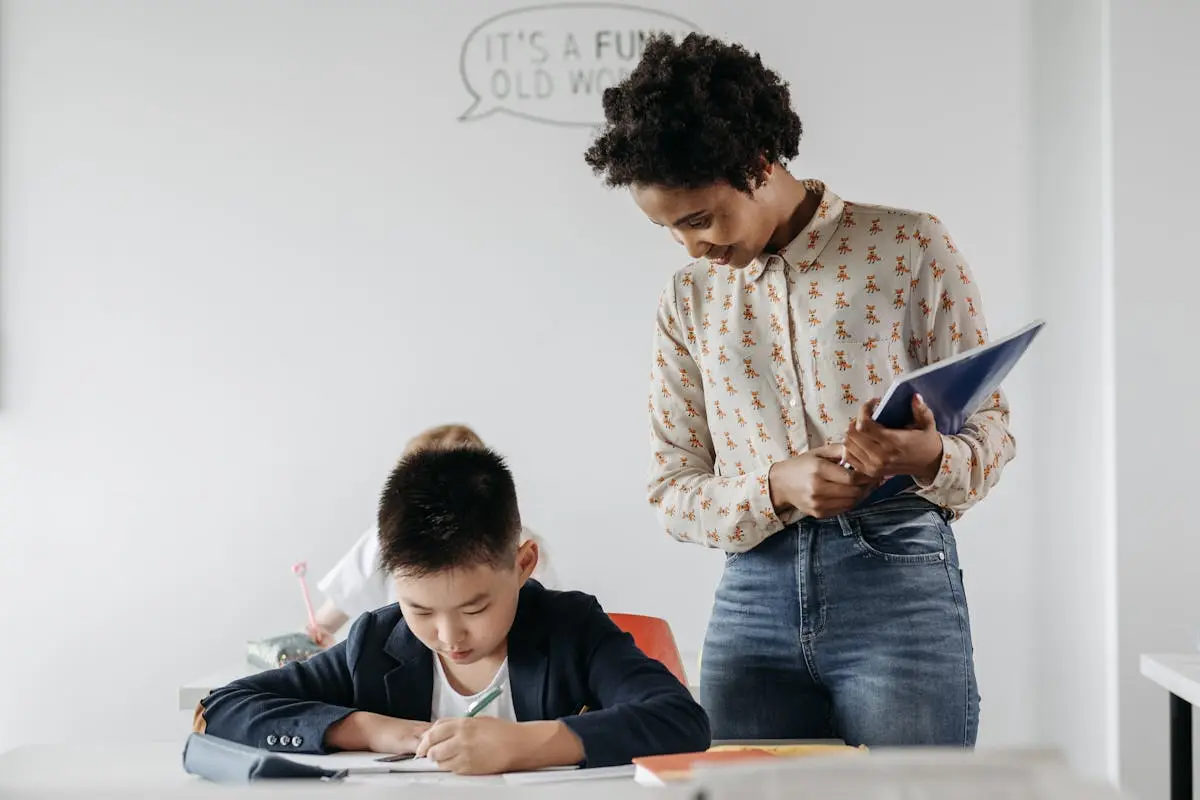In today’s educational landscape, providing effective instructional support is vital for fostering student success. This blog will explore seven impactful ways that such support can enhance learning experiences, boost confidence, and ultimately pave the way for academic achievement.
1. Personalized Learning Experiences
Instruction is the delivery of educational material. Curriculum is the what. Instruction is the how. Instructional support can happen in a wide variety of ways.
Instructional support allows educators to tailor their teaching strategies to meet the diverse needs of each student, fostering individualized learning paths. This adaptability is crucial, as every learner comes with unique strengths and weaknesses. By focusing on personalized attention, teachers can provide the right level of challenge that keeps students engaged. For example, some students may flourish with hands-on activities, while others might prefer a more traditional approach such as lectures. Each tailored method enhances the learning experience and helps students grasp complex concepts more effectively.
Moreover, personalized learning isn’t just about selecting the style of teaching; it also includes pacing. When students are assessed and their needs understood, instructional support can adjust the pace of lessons. For students who grasp concepts quickly, advanced material can keep them stimulated. Conversely, those who require more time can benefit from revisiting foundational ideas without feeling rushed. This nimbleness is essential in creating a learning environment that feels both supportive and challenging.
2. Enhanced Engagement and Motivation
Supportive instructional practices can significantly increase student engagement and motivation, making lessons more appealing and relatable. When students feel supported, they are more willing to participate actively in their learning. This can be achieved through dynamic teaching methods, interactive discussions, and integrating real-world applications of the material. For instance, when lessons relate to students’ lives or interests, they feel a greater sense of relevance, encouraging them to dive deeper into the subject matter.
Furthermore, motivation thrives in a positive learning environment. Instructional support can help create this atmosphere by recognizing student achievements, no matter how small. Celebrating successes builds confidence and encourages students to take risks in their learning. Additionally, when learners see that their educators are invested in their progress, it fosters a sense of belonging, making them more likely to engage fully in class activities. Consequently, a motivated student is not only more likely to participate but also to excel academically.
3. Access to Resources and Tools
With proper instructional support, students receive access to essential resources and tools that facilitate their learning process and boost their understanding of the material. These resources can range from educational technologies to supplementary materials that provide additional context and understanding. For example, digital platforms can offer interactive exercises that reinforce concepts learned in class, while curated reading materials can cater to various learning styles.
Importantly, the availability of resources can also reflect on the accessibility of learning opportunities. Students need to have the right tools to engage with the content meaningfully, and this is especially true for those with varied learning needs. Instructional support ensures that all students, including those with special requirements, have appropriate access. For instance, assistive technologies can help those with learning disabilities fully participate in activities. By ensuring equitable access to learning resources, schools can help bridge achievement gaps that often exist among different student groups.
Did you know the LYS lesson app provides a resource for creating lesson plans? Check it out here!
4. Building Strong Teacher-Student Relationships
Effective instructional support helps build positive relationships between teachers and students, creating a safe atmosphere where students feel comfortable asking questions. This connection is crucial, as a strong rapport can significantly enhance the learning process. When students trust their educators, they are more likely to seek help and engage in meaningful discussions about their learning needs.
Moreover, strong teacher-student relationships contribute to a sense of belonging and acceptance within the classroom. This emotional safety often translates into higher engagement and willingness to learn, as students are more comfortable taking intellectual risks. Teachers can foster these relationships by being approachable, showing empathy, and actively listening to their students’ concerns. Such an environment not only promotes academic success but also nurtures personal growth, enabling students to develop social and emotional skills that are vital for lifelong learning.
5. Promoting Collaborative Learning
Through instructional support, educators can encourage collaborative learning opportunities, fostering teamwork and communication skills among students. This approach transforms the classroom into an interactive space where students can share ideas, solve problems together, and learn from one another. Rather than the traditional individualistic learning model, collaborative environments allow students to engage in dialogue, enhancing their understanding through peer interactions.
Additionally, working in groups helps students develop critical soft skills such as negotiation, compromise, and active listening. These skills are essential not only in academic settings but also in future workplaces. Instructional support can help shape these collaborative ventures by providing clear guidelines and structures for group work, ensuring that every student has a role to play. This kind of shared responsibility not only clarifies learning objectives but also allows students to celebrate collective achievements.
Read what Cornell University has to say about it!
6. Identifying and Addressing Challenges Early
With adequate support systems in place, educators can quickly identify students who struggle and provide timely interventions to keep them on track. Early identification of challenges is critical; the sooner an educator notices a student falling behind, the quicker they can implement strategies to assist that student. This could range from offering extra tutoring sessions to modifying assignments to better suit a learner’s needs.
Furthermore, proactive measures help prevent minor difficulties from escalating into significant barriers to learning. With instructional support, teachers can maintain an ongoing dialogue with students to assess their understanding and emotional well-being. By establishing this system of checks and balances, students feel more supported and less isolated in their struggles, making it easier to address issues before they affect overall performance.
7. Empowering Students to Take Ownership of Their Learning
Instructional support not only aids in knowledge acquisition but also empowers students to become responsible for their own learning journey, fostering independence and accountability. When students are encouraged to set personal goals and reflect on their progress, they develop a sense of ownership over their education. This kind of empowerment is about more than just improving academic outcomes; it instills a lifelong love for learning.
Additionally, when students actively participate in their learning process, they become more aware of their interests and strengths. This self-awareness is invaluable, as it promotes intrinsic motivation. Instructional support can facilitate this by guiding students in creating portfolios or self-assessments that track their progress. As students see the fruits of their labor, the shift from external to internal motivation can lead to higher engagement and better retention of knowledge.








